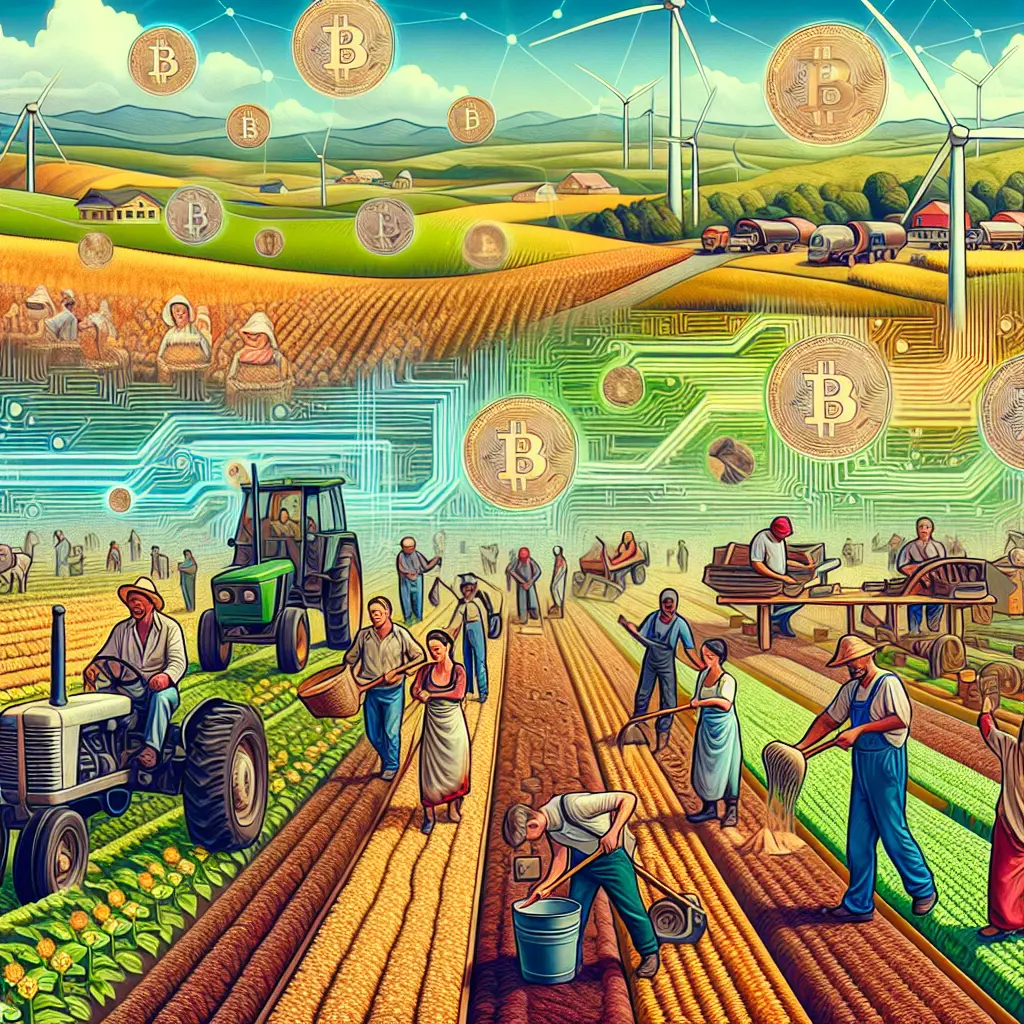In recent years, Bitcoin has emerged as a transformative force, not just in finance but across various sectors, including agriculture. The integration of Bitcoin in agriculture is paving the way for a decentralized agriculture supply chain that promises efficiency and transparency. As the backbone of agricultural blockchain technology, Bitcoin is revolutionizing farm management, offering new solutions for crop tracking and agricultural payments. This digital currency's influence is redefining the way agricultural transactions are conducted, enhancing traceability in the supply chain and ensuring more reliable agricultural logistics.
Bitcoin's role in agribusiness extends beyond transactions; it's reshaping finance through smart contracts in farming, enabling seamless and secure agreements between stakeholders. The Bitcoin revolution in farming is driving innovation, making it easier for farmers to access finance and manage their operations effectively. By introducing Bitcoin for agricultural payments, the sector is witnessing a shift toward more streamlined and cost-effective processes.
As Bitcoin continues to impact agribusiness, its potential to innovate agriculture becomes increasingly evident. Its application in agriculture goes beyond finance, acting as a catalyst for a broader transformation within the industry. From Bitcoin agricultural transactions to its use in farm management, this technology is setting new standards for transparency and efficiency. With the ongoing evolution of Bitcoin and agriculture finance, stakeholders are poised to explore further possibilities, ensuring the sector's growth and resilience. As we delve deeper into the various facets of this innovation, we'll uncover how Bitcoin is reshaping the future of agriculture.
In the rapidly evolving landscape of agribusiness, Bitcoin has positioned itself as a pivotal tool in transforming the agricultural supply chain. The integration of Bitcoin and blockchain technology is not only modernizing financial transactions within the sector but also paving the way for a decentralized agriculture supply chain that enhances transparency, efficiency, and traceability. This section explores the multifaceted role of Bitcoin in agriculture, drawing from recent developments and insights.
Enhancing Transparency and Traceability: A major advantage of utilizing Bitcoin in agriculture is its ability to enhance transparency and traceability within the supply chain. With blockchain technology, every transaction is recorded on a public ledger, providing a transparent trail that can be audited at any time. This transparency is crucial in agriculture, where ensuring the provenance and quality of produce is paramount.
Bitcoin's Role in Revolutionizing the Agricultural Supply Chain
Bitcoin agricultural transactions are reshaping how financial dealings occur in the farming sector. The decentralized nature of Bitcoin allows for secure, peer-to-peer transactions without the need for intermediaries, reducing costs and increasing transaction speed.
Blockchain in agriculture logistics is another area where Bitcoin is making significant strides. By integrating blockchain technology, agricultural logistics can be more efficiently managed, ensuring that products move seamlessly from farm to table.
Bitcoin's role in farm management is further expanded through smart contracts. These self-executing contracts with coded terms enable automated transactions once certain conditions are met, providing a seamless and secure way for farmers to manage agreements with suppliers, distributors, and other stakeholders.
Bitcoin and agriculture finance are becoming increasingly intertwined as farmers seek new ways to access capital. The use of Bitcoin can lower barriers to entry for financing by providing an alternative to traditional banking systems that can be exclusionary or cumbersome for small-scale farmers.
Exploring Future Possibilities
The Bitcoin revolution in farming extends beyond financial applications, acting as a catalyst for broader innovation across the agricultural sector. Decentralized agriculture supply chains foster environments where new technologies and practices can be tested and scaled efficiently.
As Bitcoin continues to permeate the agricultural sector, its potential applications are vast. Stakeholders are actively exploring how further integration can support sustainable practices, improve supply chain resilience, and promote global agricultural trade.
By leveraging Bitcoin's capabilities, the agricultural sector is witnessing a profound transformation. From enhancing traceability to facilitating secure transactions, the integration of Bitcoin is setting new standards for efficiency and innovation. As we continue to explore these possibilities, the role of Bitcoin in agriculture will undoubtedly expand, offering exciting opportunities for stakeholders worldwide.
For more insights into how blockchain technology is reshaping various industries, you might want to explore this comprehensive guide on blockchain applications.
In summary, Bitcoin is revolutionizing the agricultural supply chain through several critical advancements:










Leave a Comment